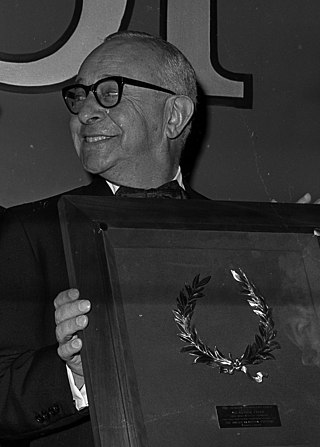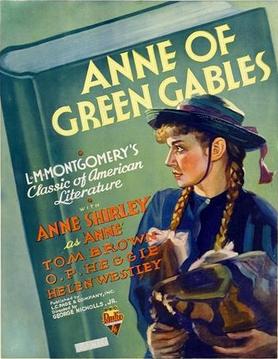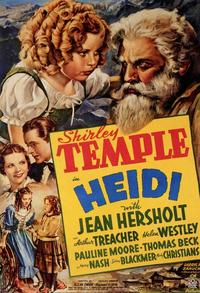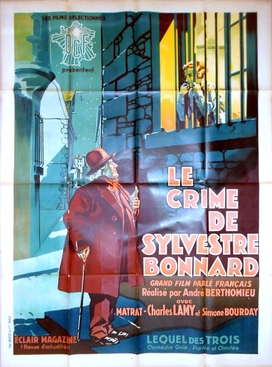
Lili is a 1953 American film released by MGM. It stars Leslie Caron as a touchingly naïve French girl whose emotional relationship with a carnival puppeteer is conducted through the medium of four puppets. The film won the Academy Award for Best Original Score, and was also entered in the 1953 Cannes Film Festival. It was later adapted for the stage under the title Carnival! (1961).

Arthur Freed was an American lyricist and a Hollywood film producer. He won the Academy Award for Best Picture twice, in 1951 for An American in Paris and in 1958 for Gigi. Both films were musicals, and both were directed by Vincente Minnelli. In addition, he produced the film Singin' in the Rain, the soundtrack for which primarily consisted of songs he co-wrote earlier in his career.

John Qualen was an American character actor of Norwegian heritage who specialized in Scandinavian roles.

Anne of Green Gables is a 1934 American comedy drama film directed by George Nicholls, Jr., based upon the 1908 novel Anne of Green Gables by Canadian author Lucy Maud Montgomery. Dawn O'Day, who portrayed the title character in the film, changed her stage name to Anne Shirley, which she was billed as for this and all subsequent roles. The film was a surprise hit, becoming one of four top-grossing films RKO made that year as noted in The R.K.O. Story, published by Arlington House.

Five Graves to Cairo is a 1943 war film directed by Billy Wilder and starring Franchot Tone and Anne Baxter. Set in World War II, it is one of a number of films based on Lajos Bíró's 1917 play Hotel Imperial: Színmű négy felvonásban, including the 1927 film Hotel Imperial. Erich von Stroheim portrays Field Marshal Erwin Rommel in a supporting performance.

Can-Can is a 1960 American musical film made by Suffolk-Cummings productions and distributed by 20th Century Fox. It was directed by Walter Lang, produced by Jack Cummings and Saul Chaplin. The screenplay was written by Dorothy Kingsley and Charles Lederer, loosely based on the musical play by Abe Burrows. The music and lyrics were written by Cole Porter for the play, but for the film, some songs were replaced by those from earlier Porter musicals. Art direction was handled by Jack Martin Smith and Lyle R. Wheeler, costume design by Irene Sharaff and dance staging by Hermes Pan. The film was photographed in Todd-AO. Although performing well on initial release, it failed to recoup its production costs from its domestic receipts.

Heidi is a 1937 American musical drama film directed by Allan Dwan and written by Julien Josephson and Walter Ferris, loosely based on Johanna Spyri's 1880 children's book of the same name. The film stars Shirley Temple as the titular orphan, who is taken from her grandfather to live as a companion to Klara, a spoiled, disabled girl. It was a success and Temple enjoyed her third consecutive year as number one box office draw.

Helen Westley was an American character actress of stage and screen.

Oliver Peters Heggie, billed as O. P. Heggie, was an Australian film and theatre actor best known for portraying the hermit who befriends the Monster in the film Bride of Frankenstein (1935). He was born Otto Peters Heggie at Angaston, South Australia to a local pastoralist. He was educated at Whinham College and the Adelaide Conservatoire of Music. He died in Los Angeles of pneumonia. He is buried at Woodside Cemetery, Yarmouth Port, Barnstable County, Massachusetts.

Frederick Hugh Herbert was a playwright, screenwriter, novelist, short story writer, and infrequent film director.

In the Meantime, Darling is a 1944 American drama film produced and directed by Otto Preminger. The screenplay by Arthur Kober and Michael Uris focuses on a wealthy war bride who is forced to adjust to living in spartan conditions in military housing during World War II.

Playboy of Paris is a 1930 American pre-Code musical comedy film directed by Ludwig Berger and starring Maurice Chevalier, Frances Dee, and O.P. Heggie. It was based on a 1911 play The Little Cafe by Tristan Bernard which had previously been adapted into a 1919 French silent film. Paramount produced a separate French-language version Le Petit Café, also starring Chevalier, which broke records for an opening-day attendance in Paris.

The Crime of Sylvestre Bonnard is the first novel by Anatole France, published in 1881. With this, one of his first prose works, he made himself known as a novelist; he had been primarily known as a poet affiliated with Parnassianism because of his Poèmes dorés, which imitated that verse style. The novel received the Académie française prize.
Grand Old Girl is a 1935 American drama film directed by John Robertson from a screenplay by Milton Krims, John Twist, Arthur T. Horman, adapted from a story by Wanda Tuchock. The film stars May Robson, Mary Carlisle, Fred MacMurray, and Alan Hale, other cast members included Ben Alexander.

A Dog of Flanders is a 1935 American drama film directed by Edward Sloman, based on a screenplay by Ainsworth Morgan from the story by Dorothy Yost, which she adapted from the 1872 novel of the same name by Ouida. The film stars Frankie Thomas, appearing in only his second film.

The Arizonian is a 1935 American Western film directed by Charles Vidor and starring Richard Dix, Margot Grahame, Preston Foster, and Louis Calhern. The screenplay was by Dudley Nichols. The film was released by RKO Radio Pictures on June 28, 1935.

Freckles is a 1935 American drama film directed by Edward Killy and William Hamilton from a screenplay written by Dorothy Yost, adapted by Mary Mayes from Gene Stratton-Porter's 1904 novel of the same name. Two earlier adaptations of Stratton-Porter's novel had been produced, the first by Paramount in 1917, and the second in 1928 by FBO, both were also titled Freckles. This 1935 version was released by RKO Radio Pictures on October 4, and stars Tom Brown, Virginia Weidler, and Carol Stone.

Ginger is a 1935 American comedy-drama film directed by Lewis Seiler and written by Arthur Kober. The film stars Jane Withers, O. P. Heggie, Jackie Searl, Katharine Alexander, and Walter Woolf King. It was Withers' first starring role.

The Crime of Sylvestre Bonnard is a 1929 French silent drama film directed by André Berthomieu and starring Émile Matrat, Thérèse Kolb and Gina Barbieri. It is based on the 1881 novel The Crime of Sylvestre Bonnard by Anatole France.
Champagne for Breakfast is a 1935 American comedy-drama film, directed by Melville Brown. It stars Mary Carlisle, Hardie Albright, and Joan Marsh, and was released on June 18, 1935.

















